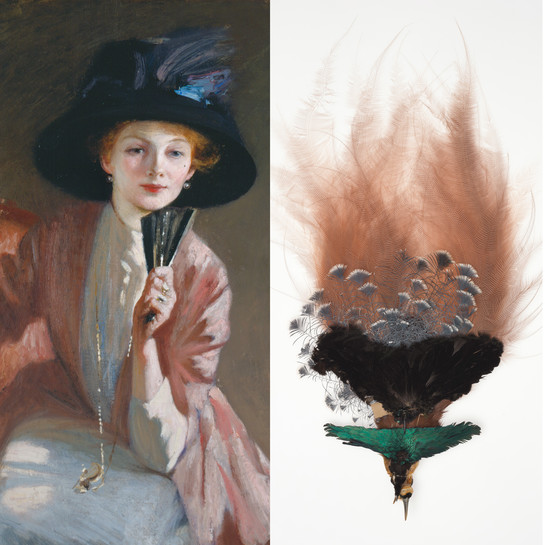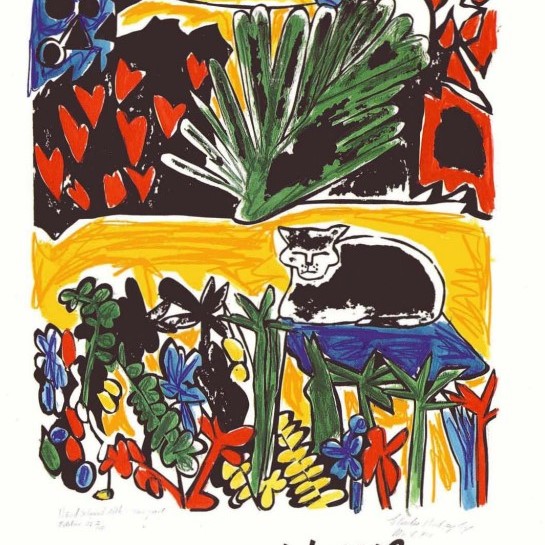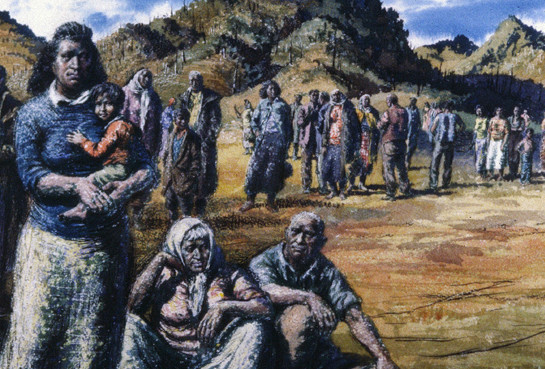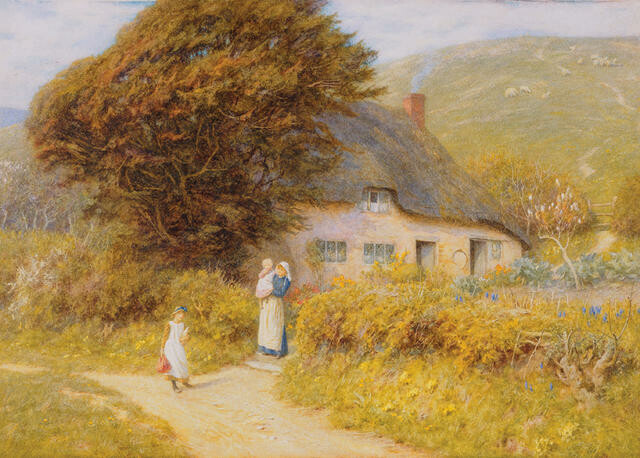Helen Allingham
England, b.1848, d.1926
A Dorset cottage
- c. 1904
- Watercolour
- Bequeathed to the Canterbury Society of Arts by Lady Rhodes, 1931. Presented to the City 1932
- 545 x 700mm
- 69/386
Tags: animals, children (people by age group), chimneys (architectural elements), cottages, farms, flowers (plants), hedges, infants, paths, sheep, trees
Helen Allingham’s paintings are typical of a small group of English artists whose works depicted pleasant scenes of country life. Their popularity was a response to industrialisation in the Victorian age and the loss of country life, of which the cottage was a symbol.
Allingham specialised in idealised scenes of old cottages, overgrown lanes and sunny garden scenes and her paintings always contained people. Her palette consisted of nine colours only, of which five were different shades of yellow. Wherever possible she painted her watercolours in the open air.
Allingham (née Patterson) was born at Burton-on-Trent in Staffordshire. In 1867 she went to London, initially studying at the Female School of Art, then moving on to the Royal Academy Schools. In 1874 she married the Irish poet William Allingham (1824 -1889). He introduced her to John Ruskin (1819 -1900) who was to champion her art. In 1875 Allingham was elected an associate of the Royal Society of Painters in Watercolours.



